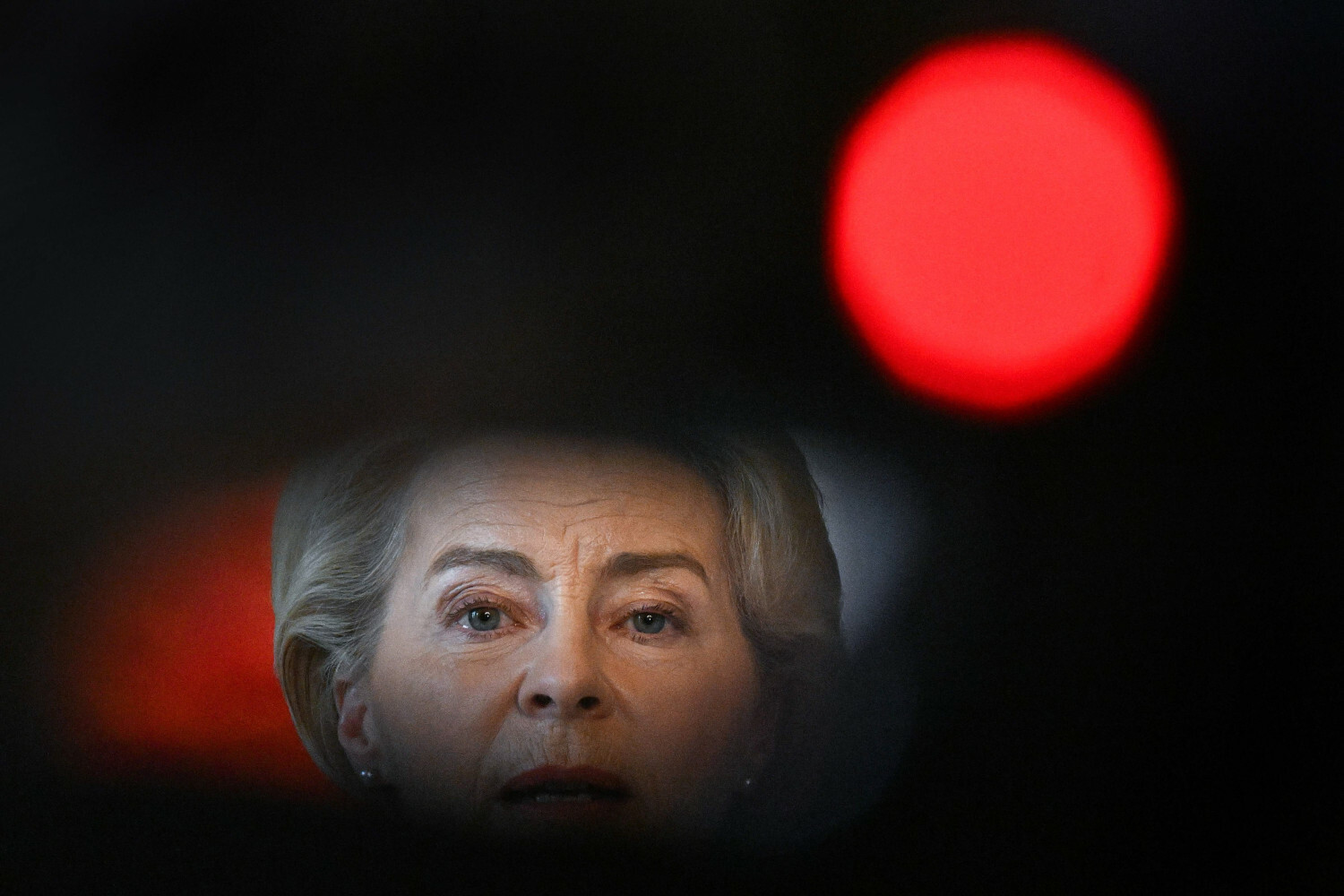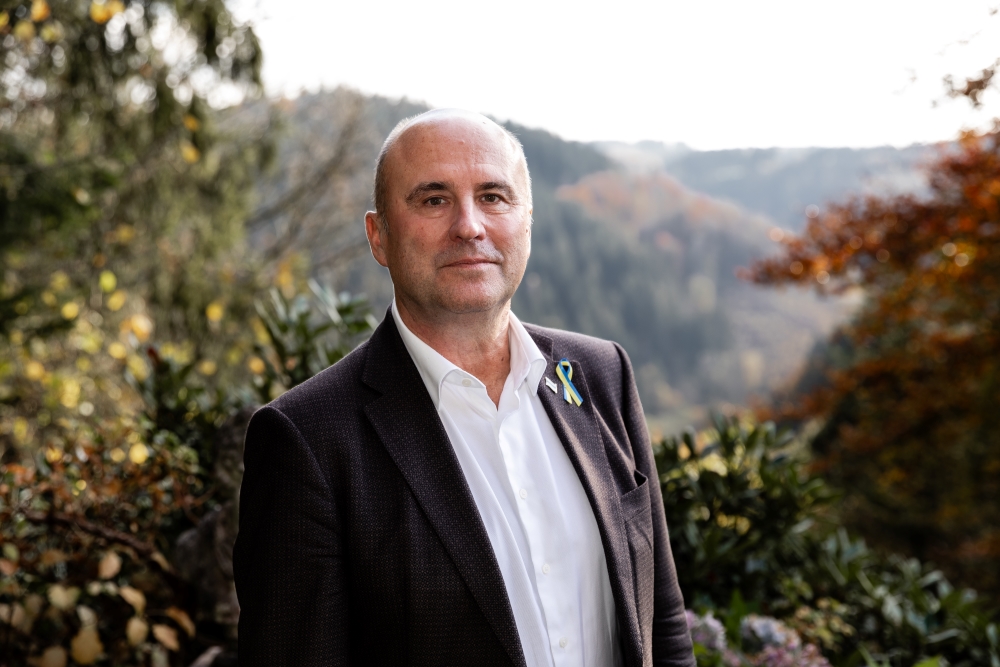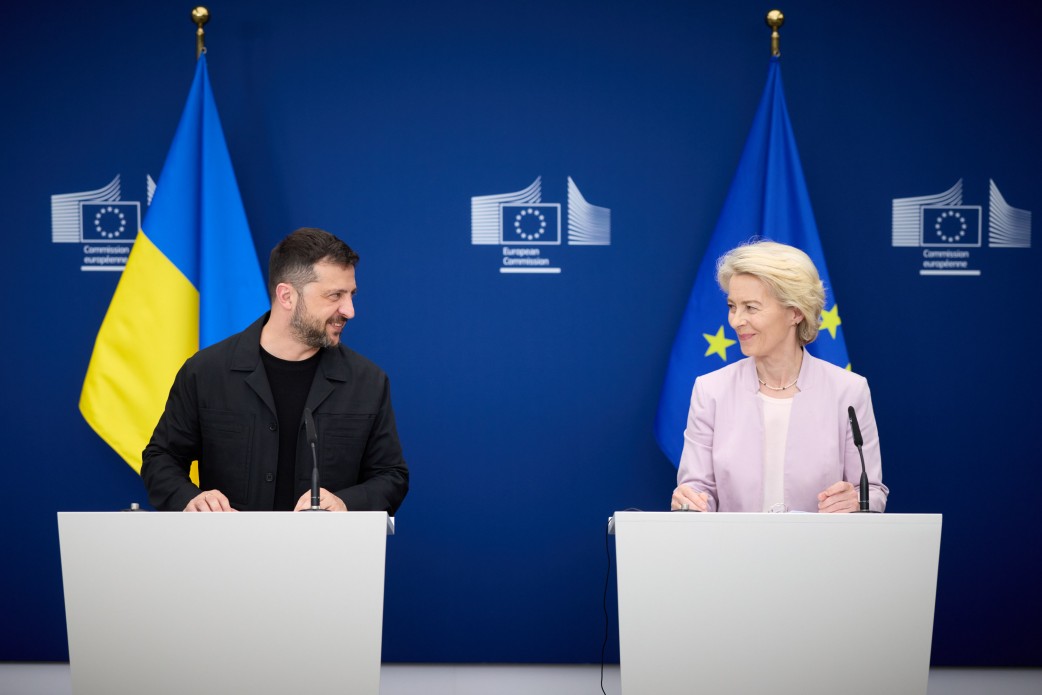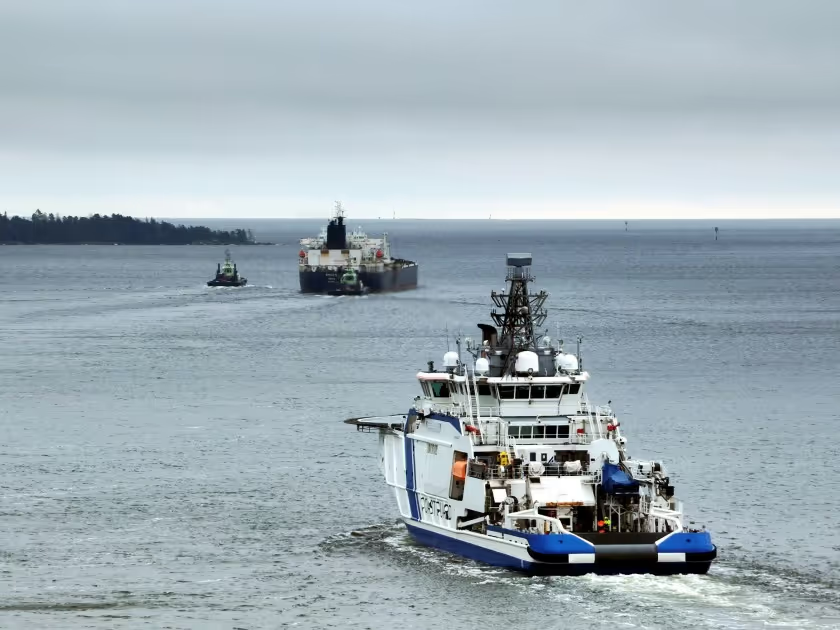Support Sestry
Even a small contribution to real journalism helps strengthen democracy. Join us, and together we will tell the world the inspiring stories of people fighting for freedom!
While NATO leaders reaffirm their commitment to supporting Ukraine, and the EU once again demonstrates the fragility of its unity under pressure from Budapest, Russia not only refuses to halt its aggression but is intensifying its actions - both on the battlefield and in the information war. The summit in The Hague did not result in a breakthrough: promises without guarantees, talk of «peace through strength», hints at dialogue with Putin - all amid the increasingly evident decline in American ambition. Simultaneously, Hungary is blocking new sanctions, and the Kremlin is launching sophisticated cyber operations, pretending the world has already accepted its presence.
On how the West’s strategy has changed, what risks stem from illusions about Russia, what the new wave of disinformation means, and why Europe must take the lead in deterring aggression, Sestry spoke with Keir Giles - a leading British expert on security and Russia, and Senior Consulting Fellow with the Russia and Eurasia Programme at Chatham House.
Trump, NATO and Russia: an alliance on the brink of compromise and challenges
Maryna Stepanenko: «Peace through strength» was declared the main theme of the talks between Trump and Zelensky. After the meeting, the head of the White House hinted at dialogue with Putin and possible Patriot missile deliveries, but no firm commitments were made. In this context, how, in your opinion, could the formula «peace through strength» be applied to Russia, and how ready is the US to take on a real role in exerting pressure?
Keir Giles: We have always known that the only way to ensure European security is to provide Ukraine with the maximum possible support. So now we are dealing with the consequences of the policy of several successive US administrations that decided a different approach was needed. They are profoundly mistaken, and this causes enormous damage not only to European security and, of course, to Ukraine itself, but also to global security.
It is precisely such restraint and refusal to confront aggression that has led to the outbreak of global conflicts around the world
We are witnessing escalating situations, increasing casualties, and more wars breaking out - all because of this new American idea that confronting the aggressor is more dangerous than allowing the victim to be destroyed

The meeting between US and Ukrainian leaders once again raised the question: what model of support for Kyiv does Washington envisage? Are we speaking about a strategic partnership or rather about controlled containment of the war without long-term commitments?
There is a serious question as to whether a genuine strategic partnership with Donald Trump is even possible. After all, the United States sought partnership with Russia - and even that does not work particularly well, despite Trump being willing to do whatever it takes to give Russia everything it wants. Any country, any traditional friend, ally or partner of the United States must remember that the relationships upon which America’s former prosperity and security were built no longer have any real meaning for Trump. We are in an entirely new global environment.
This means that countries that take European security seriously, and therefore also the security and future of Ukraine, must step up to fill the gap left by the United States. This applies primarily to Europe’s neighbours, but also to liberal democracies around the world that have a shared interest in ending aggression.
Recently, there were rumours in Brussels that Russia might be removed from the list of NATO’s main threats, leaving only international terrorism. This seems strange considering that it is Russia that continues the war in Europe and destabilises the situation globally, from Africa to the Middle East. In the final communiqué, Russia was recognised as a long-term threat to the entire Alliance. However, do you generally observe an attempt by the West to «normalise» the aggressor?
The United States has long pretended that Russia is not a problem, and we should not rule out the possibility that NATO, in its desperate efforts to retain the US in the alliance, may go along with this rhetoric.
We have already seen signs that NATO is prepared to take extraordinary measures to placate Trump: take, for example, the letter written to him by Secretary General Mark Rutte, deliberately composed in «Trump’s language». It must have been extremely difficult to imitate the verbal expressions of a five-year-old child in order to accomplish this.
Therefore, we cannot confidently predict how far NATO might go to ensure continued US participation in the Alliance. But European countries must harbour no illusions about whether Russia has ceased to be a threat, regardless of the efforts of the current US administration to convince itself otherwise.
The resilience of regimes and the fragility of decisions: what will determine the duration of the war
Despite sanctions, battlefield losses and growing isolation, Putin’s regime is holding firm - at least on the surface. Given your expertise, what is the source of this system’s resilience today, and what could destabilise it from within?
There is little chance that the Russian regime will be brought down from within, as it appears to be a regime with which the overwhelming majority of the Russian population is entirely satisfied.
Ultimately, it is a self-sufficient system in which those who have gained wealth and power within it have no interest in its destruction. Therefore, there is currently no reason to believe that Russia will deviate from its aggressive course, despite the long-term damage and the catastrophic consequences for the country’s economy and its population.
Assuming the end of the war is neither imminent nor hopelessly distant, what factors, in your view, might break the current deadlock? You have outlined internal collapse as unlikely, but could it be external pressure or something else we have yet to articulate?
The answer to this question has always been and will remain the same: European countries must provide Ukraine with maximum physical and financial support to help it defeat Russia, by any means available. Not necessarily on the front lines, but also through other forms of support.
European countries are slowly realising that their future is closely linked to the future of Ukraine, and that they can no longer rely on the United States as the primary sponsor of these efforts. But Europe will need to do much more for Ukraine to continue holding the front line and repelling the aggressor.
Russia and Belarus have announced the «Zapad-2025» exercises. In the past, such manoeuvres have served as a prelude to aggression. Is there currently a risk of this scenario being repeated, and is the West capable of responding adequately amid political fragmentation?
People always become anxious ahead of the «Zapad» exercises - this has been the case long before the full-scale invasion of Ukraine and even before the annexation of Crimea. And yes, it always creates an opportunity to do something unrelated to the training itself.
But at this stage, when there is already an intense conflict ongoing, should we consider «Zapad» as just another element of battlefield deception, part of a broader deception within the ongoing war, rather than the start of a new one?
Of course, Western intelligence services will be closely monitoring who is doing what and where in the context of the Russian-Belarusian exercises - even in this new reality, where a significant part of Russia’s ground forces is already deeply engaged in Ukraine and has limited capacity for operations in other regions.
«The invisible front»: how Russia is waging war against the West in the information space
Mr Giles, you yourself became the target of a new, sophisticated phishing attack by Russian hackers - disguised as an employee of the US State Department. The attackers used Gmail’s «delegate access» function to gain hidden access to your inbox, bypassing two-factor authentication. This operation likely required weeks of effort. In this context, how has Russia’s tactic in the information war changed over the past year? And what does this say about the new level of threat?
I am confident the entire operation took far longer - several weeks just for the execution, so the planning stage must have begun much earlier.
On the one hand, this new technique, this new approach to gaining access to people’s email, indicates that Russia is being forced to develop more refined methods because its previous, more primitive attempts have failed. For many years, there have been numerous attempts to hack my email, some laughably primitive, others highly complex and sophisticated.
But on the other hand, this new method highlights that we are all vulnerable
The way the suspected Russian attackers exploited a built-in Gmail feature available in every user’s account to create, essentially, a «side door» that bypasses all our usual security measures (two-factor authentication, mobile codes, confirmation requests) shows that no one is truly safe.
Until companies such as Google, Microsoft and others fix this loophole, it is inevitable that this technique will be used much more broadly, not only against targets like me.
This summer, Europe witnessed a wave of fake messages sent on behalf of Western governments, social media manipulations, and interference in election campaigns in individual EU member states. How exactly is Russia trying to influence public opinion in Europe today, and which narratives is it primarily promoting?
Some of Russia’s narratives are entirely consistent over time, while others are tied to specific political events. It is important to remember that the campaigns conducted by Russia are ongoing and are not limited to dates on the democratic calendar.
Russia is constantly working to undermine the forces that unite Europe: solidarity among European states, societal cohesion, trust in institutions and, above all, support for Ukraine in resisting Russian aggression
These campaigns are permanent. In addition, there are targeted, time-sensitive efforts aimed at influencing the outcomes of specific democratic processes in specific countries at specific times.
Sanctions fatigue: Is the West’s pressure on the Kremlin still effective?
In addition to the NATO summit, another event important for Ukraine took place - the European Council summit. There, both a new sanctions package against the Russian Federation and support for Ukraine’s negotiation process with the EU were discussed - both initiatives were blocked by Hungary. Sanctions - also by Slovakia. To what extent do such actions undermine trust in EU unity, and what self-defence mechanisms against internal sabotage does the EU need?
This is yet another illustration of how consensus-based organisations - NATO and the EU - are vulnerable to the lowest common denominator. If there is a saboteur or a disruptor within, it can effectively paralyse the entire organisation, especially in the case of the EU, which is primarily a trade organisation rather than a structure designed to address geopolitical conflicts.
In many ways, the very structure of Europe’s supranational institutions does not meet the challenges they currently face
Nevertheless, it is impressive how far they have come in maintaining unity and a shared understanding of the importance of supporting Ukraine. I hope and believe that it will once again be possible to find a workaround to move forward, even without the cooperation of countries such as Hungary, Slovakia or others.

What does it signify that the United States currently does not intend to increase sanctions pressure on the Russian Federation from its side?
Well, the message from the United States has been very clear. At present, they are partners with Russia and are seeking to impose on Ukraine the terms of capitulation dictated by Moscow. This is the reality with which Ukraine and Europe must now contend.
And it is precisely the adaptation to this reality, and the speed with which it occurs, that will determine the future security of the entire continent.
Cover photo: Office of the President of Ukraine
This project is co-financed by the Polish-American Freedom Foundation under the «Support Ukraine» programme, implemented by the Education for Democracy Foundation




Ukrainian journalist. Worked at the Ukrainian edition of Radio France Internationale. She was the senior editor of the English-language project of the Multimedia Broadcasting Platform of Ukraine. She held the position of international news department columnist at the «Inter» TV channel. She has also been involved in documentary filmmaking in the past. Currently, she is developing a Ukrainian-language YouTube project as an editor and scriptwriter.



















